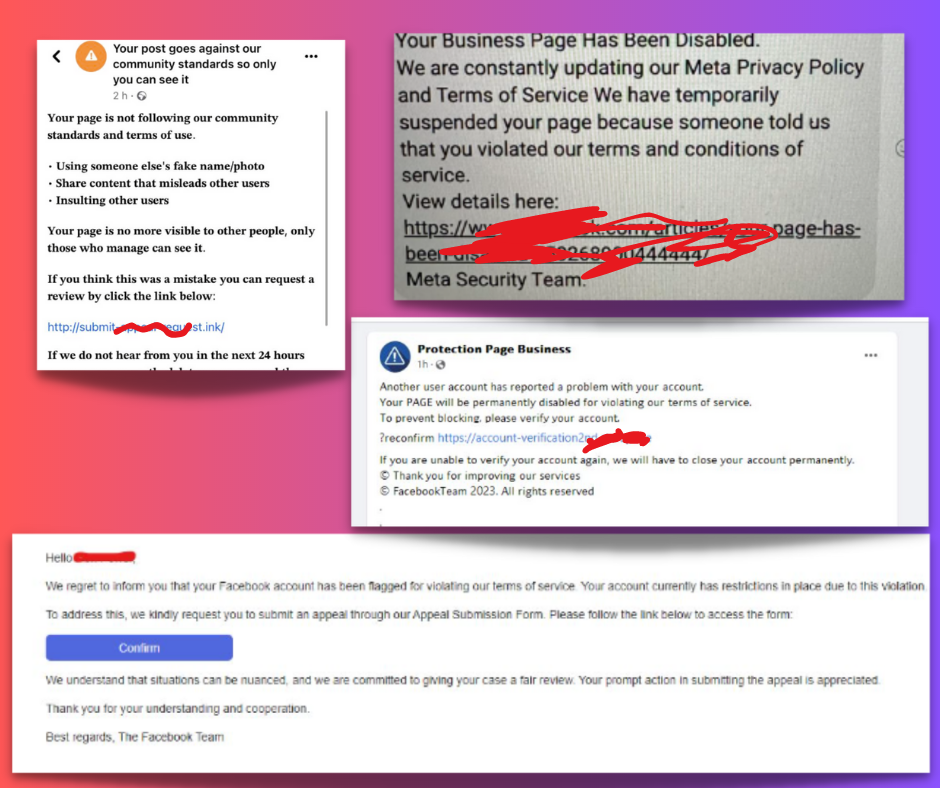
If you haven’t received one of these seemingly alarming messages via email, private message, or on-page tagging yet and you are an admin of a Facebook page, chances are you will. We are closely monitoring the influx of fraudulent copyright infringement notifications or community standard violations, and Facebook is working quickly to combat this surge.
It’s essential to be vigilant, as most of these alerts, which may appear as official communications from Facebook, are actually spam. For your safety, please refrain from clicking on any links in such messages. Don’t panic, but rather check on your page quality.
What Should You Do?
- Don’t click ANY links in such messages. Instead, log in as normal, navigate to your page, and check your Page Quality. It should say “good” & “no violations”.
- Mark messages in private messenger as “spam” and delete them. Ignore emails. Report as “spam” and “block” any pages or commentators that leave spammy messages tagging your page.
- Familiarize yourself with Facebook Community Standards so you don’t inadvertently post anything on your page that could cause a legitimate issue with your page getting disabled.
- Get your two-factor authentication set up to heighten your Facebook security and follow Facebook best practices.
- Make sure you have at least two FULL admins on your Facebook page & everyone who is an admin is aware of all of this information. It only takes one person to click a phishing link to cause issues.
